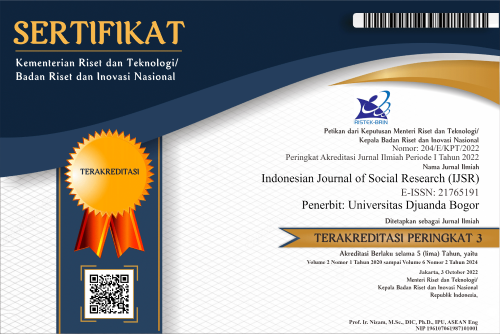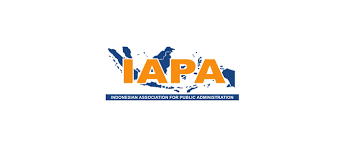Towards a Transformed Geography Curriculum: A Post-colonial Critique
Abstract
The growing need to decolonize higher education has put pressure on geography educators to reform curricula and pedagogy. This literature review examines the history, rationale and pathways of curriculum decolonization with an emphasis on: 1) the history of calls to decolonize geography courses 2) arguments for why reform is needed and 3) examples of reforms in different contexts. A postcolonial framework clarifies why traditional curricula perpetuate marginalization and why transforming geographic education is crucial. It also highlights how teacher development focused on decolonization, local pedagogy and knowledge can facilitate reform. Overall, transforming geographic education to recognize excluded perspectives, knowledge and injustice is imperative but progress depends on empowering educators to envision and implement transformative reforms.
References
Barker, A. J., & Pickerill, J. (2020). Doings with the land and sea: Decolonising geographies, Indigeneity, and enacting place-agency. Progress in Human Geography, 44(4), 640–662.
Bhati, A. (2023). What can post-colonial theory contribute to the study of social equity? Public Administration Review, 83(1), 203–209.
Bhuyan, R., Bejan, R., & Jeyapal, D. (2017). Social workers’ perspectives on social justice in social work education: When mainstreaming social justice masks structural inequalities. Social Work Education, 36(4), 373–390. https://doi.org/10.1080/02615479.2017.1298741
Carter, L. (2017a). A decolonial moment in science education: Using a socioscientific issue to explore the coloniality of power. Revista Brasileira de Pesquisa Em Educação Em Ciências, 1061–1085.
Carter, L. (2017b). A decolonial moment in science education: Using a socioscientific issue to explore the coloniality of power. Revista Brasileira de Pesquisa Em Educação Em Ciências, 1061–1085.
Clayton, D. W. (2020). The passing of “geography’s empire” and question of geography in decolonization, 1945–1980. Annals of the American Association of Geographers, 110(5), 1540–1558.
Glück, A. (2018). De-Westernization and Decolonization in Media Studies. In A. Glück, Oxford Research Encyclopedia of Communication. Oxford University Press. https://doi.org/10.1093/acrefore/9780190228613.013.898
Gyamera, G. O., & Burke, P. J. (2018). Neoliberalism and curriculum in higher education: A post-colonial analyses. Teaching in Higher Education, 23(4), 450–467.
Harambam, J. (2021). Against modernist illusions: Why we need more democratic and constructivist alternatives to debunking conspiracy theories. Journal for Cultural Research, 25(1), 104–122.
Heleta, S. (2016). Decolonisation of higher education: Dismantling epistemic violence and Eurocentrism in South Africa. Transformation in Higher Education, 1(1), 1–8.
Horrill, T., McMillan, D. E., Schultz, A. S., & Thompson, G. (2018). Understanding access to healthcare among Indigenous peoples: A comparative analysis of biomedical and post-colonial perspectives. Nursing Inquiry, 25(3), e12237.
Jazeel, T. (2017). Mainstreaming geography’s decolonial imperative. Transactions of the Institute of British Geographers, 42(3), 334–337.
Kalema, N. N. L. (n.d.). Decolonizing Social Innovation for Global Development.
Khoo, S., Mucha, W., Pesch, C., & Wielenga, C. (2020). Epistemic (in) justice and decolonisation in higher education: Experiences of a crosssite teaching project. Acta Academica, 52(1), 54–75.
Kvangraven, I. H., & Kesar, S. (2023). Standing in the way of rigor? Economics’ meeting with the decolonization agenda. Review of International Political Economy, 30(5), 1723–1748. https://doi.org/10.1080/09692290.2022.2131597
Laing, A. F. (n.d.). Decolonising pedagogies in undergraduate geography: Student perspectives on a Decolonial Movements module.
Langer, C., & Matić, U. (2023). Post-colonial Theory in Egyptology: Key Concepts and Agendas. Archaeologies, 19(1), 1–27.
Long, D., Dalu, M. S., Lembani, R. L., & Gunter, A. (2019). Shifting sands: The decoloniality of geography and its curriculum in South Africa. South African Journal of Science, 115(9–10), 1–3.
McKinney, C. (2016). Language and power in post-colonial schooling: Ideologies in practice. Routledge.
Mignolo, W. (2010). Cosmopolitanism and the decolonial option. Studies in Philosophy and Education, 29, 111–127.
Moloi, L. (n.d.). TOWARDS AN AFROCENTRIC DEVELOPMENT PARADIGM IN AFRICA.
Mongia, P. (2021). Contemporary post-colonial theory: A reader. Routledge.
Murray, C. P. (2020). Anti-imperial world politics: Race, class, and internationalism in the making of post-colonial order.
Nicholas, G., & Hollowell, J. (2016). Ethical challenges to a post-colonial archaeology: The legacy of scientific colonialism. In Archaeology and Capitalism (pp. 59–82). Routledge.
Noxolo, P. (2017). Introduction: Decolonising geographical knowledge in a colonised and re‐colonising post-colonial world. Area, 49(3), 317–319.
Pickering, C., & Byrne, J. (2014). The benefits of publishing systematic quantitative literature reviews for PhD candidates and other early-career researchers. Higher Education Research & Development, 33(3), 534–548.
Ramutsindela, M. (2021). Green violence and human rights in conservation spaces. Ramos et al.(Eds.), Policy Matters. Special Issue on Environmental Defenders, 22, 36–43.
Shahjahan, R. A., Estera, A. L., Surla, K. L., & Edwards, K. T. (2022). “Decolonizing” Curriculum and Pedagogy: A Comparative Review Across Disciplines and Global Higher Education Contexts. Review of Educational Research, 92(1), 73–113. https://doi.org/10.3102/00346543211042423
Sharp, J. P. (2013). Geopolitics at the margins? Reconsidering genealogies of critical geopolitics. Political Geography, 37, 20–29. https://doi.org/10.1016/j.polgeo.2013.04.006
Struckmann, C. (2018). A post-colonial feminist critique of the 2030 Agenda for Sustainable Development: A South African application. Agenda, 32(1), 12–24. https://doi.org/10.1080/10130950.2018.1433362
Suina, M. (2016). Reflections of a Pueblo Indian health educator: Weaving Pueblo worldview into health education. Journal of American Indian Education, 55(3), 72–90.
Ukwandu, D. (n.d.). David Ricardo’s theory of comparative advantage and its implication for development in Sub-Saharan Africa.
Copyright (c) 2023 Indonesian Journal of Social Research (IJSR)

This work is licensed under a Creative Commons Attribution-ShareAlike 4.0 International License.
The Authors submitting a manuscript do so on the understanding that if accepted for publication, copyright publishing of the article shall be assigned/transferred to Indonesian Journal of Social Research (IJSR) Universitas Djuanda as Publisher of the journal. Upon acceptance of an article, authors will be asked to complete a 'Copyright Transfer Agreement'. An e-mail will be sent to the corresponding author confirming receipt of the manuscript together with a 'Copyright Transfer Agreement' form by online version of this agreement.
Indonesian Journal of Social Research (IJSR) Universitas Djuanda, the Editors and the Editorial Board make every effort to ensure that no wrong or misleading data, opinions or statements be published in the journal. In any way, the contents of the articles and advertisements published in the Indonesian Journal of Social Research (IJSR) Universitas Djuanda are sole and exclusive responsibility of their respective authors and advertisers.
Remember, even though we ask for a transfer of copyright, our journal authors retain (or are granted back) significant scholarly rights as mention before.
The Copyright Transfer Agreement (CTA) Form can be downloaded here: Copyright Transfer Agreement-IJSR 2020
The copyright form should be signed electronically and send to the Editorial Office e-mail below:
Dr. Rasmitadila, M.Pd (Editor-in-Chief)
Universitas Djuanda
Jl. Tol Jagorawi No.1, Ciawi, Kec. Ciawi, Bogor, Jawa Barat 16720
Website: http://journal.unida.ac.id/index.php/IJSR/index
Email: ijsr@unida.ac.id





4.png)



